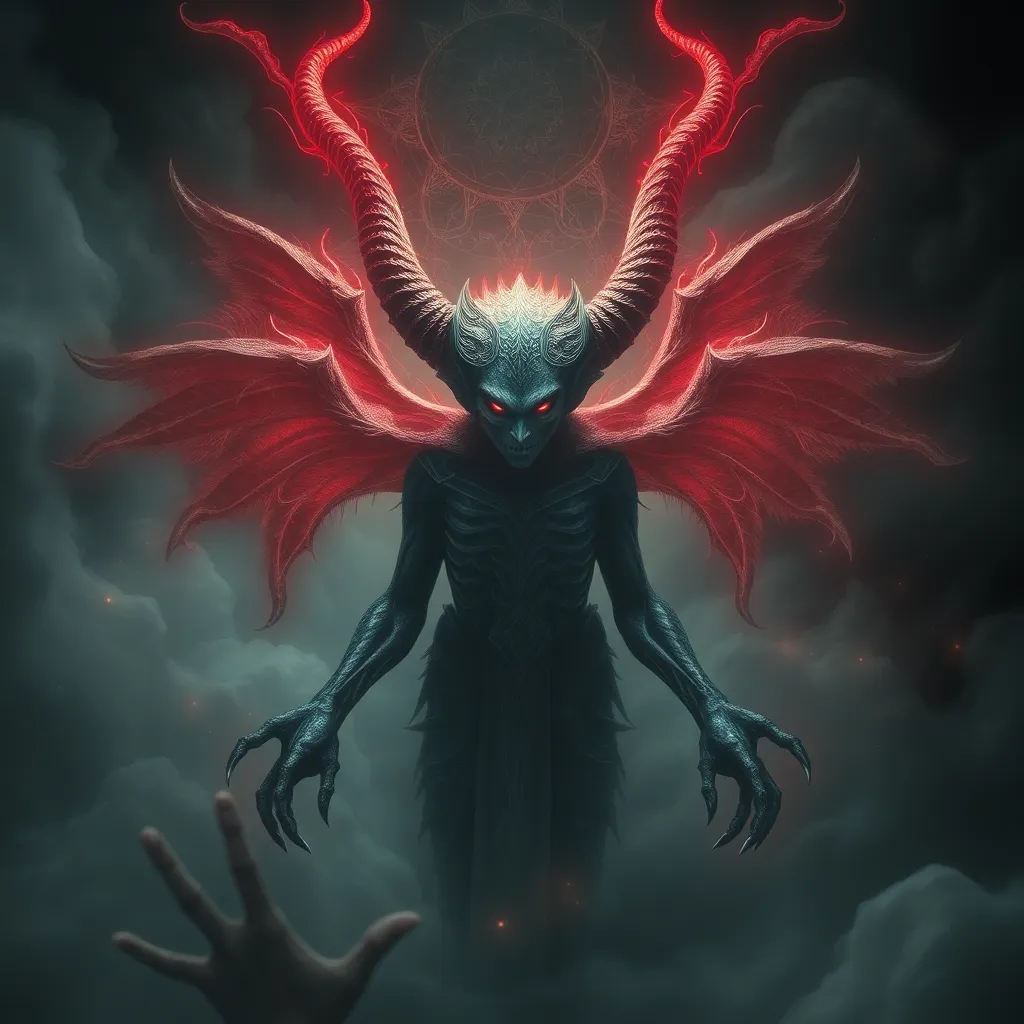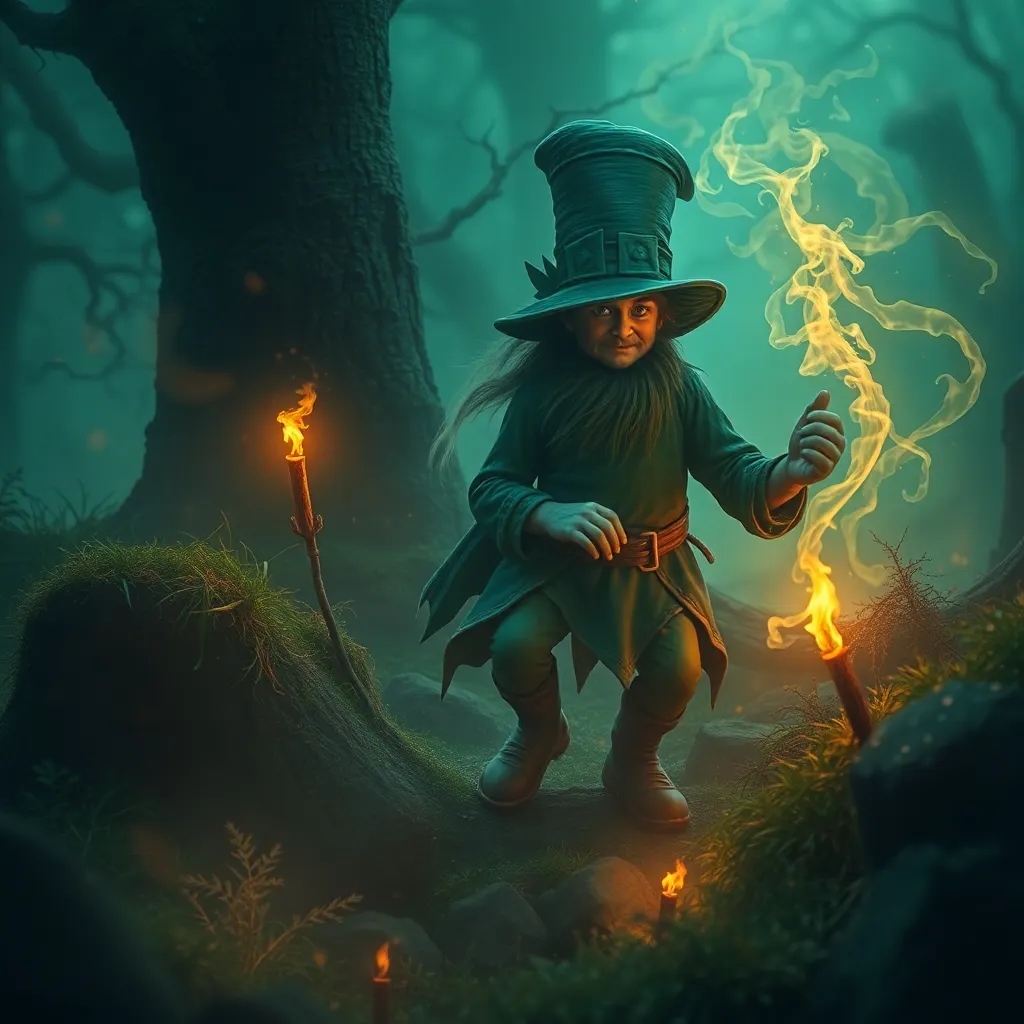Empusa’s Influence on Dreams: The Demon’s Role in Nightmares and Visions
I. Introduction
In the rich tapestry of ancient Greek mythology, Empusa stands out as a fascinating and complex figure. Often depicted as a demon or a spirit, Empusa is known for her ability to shapeshift and seduce. Her presence in folklore has left a significant mark on the understanding of nightmares and dreams, making her an intriguing subject for analysis.
Dreams have long captured the human imagination, serving as a portal to our subconscious and a space where our fears, desires, and experiences intertwine. They hold significant cultural and psychological importance, influencing art, literature, and personal introspection. This article aims to explore the connection between Empusa and dreams, particularly focusing on her influence on nightmares and prophetic visions.
II. The Mythological Background of Empusa
Empusa, a figure rooted in ancient Greek mythology, is often described as a terrifying entity that preys on the young and vulnerable. Her origins can be traced back to the works of early philosophers and writers, such as Herodotus, who depicted her as a demon serving the goddess Hecate.
Characteristics of Empusa include:
- Shapeshifting abilities, allowing her to appear in various forms.
- A seductive nature, often luring victims into a false sense of security.
- Association with the night, darkness, and the supernatural.
Empusa’s role in folklore extends beyond mere tales; she has been represented in various forms of art and literature, embodying themes of fear, desire, and the unknown. Her character serves as a warning against succumbing to temptation and the dangers that lurk in the shadows.
III. Understanding Dreams and Nightmares
Dreams are a universal experience, reflecting our innermost thoughts and emotions. Psychologically, dreaming is believed to be a way for the brain to process experiences, emotions, and memories. Physiologically, REM sleep is the stage where most vivid dreams occur, allowing the mind to explore scenarios that may not be possible in waking life.
Nightmares, on the other hand, are distressing dreams that can lead to feelings of fear, anxiety, and even panic. Differentiating between dreams, nightmares, and visions is crucial:
- Dreams: Ordinary experiences during sleep that can range from mundane to fantastic.
- Nightmares: Disturbing dreams that often awaken the sleeper, leaving them feeling frightened or unsettled.
- Visions: Intense experiences that may have prophetic implications or spiritual significance.
Culturally, nightmares have held different meanings across societies, often seen as omens or messages from the divine. Understanding these variations can provide insights into how figures like Empusa are perceived in the context of dreams.
IV. Empusa as a Symbol of Nightmares
Empusa’s portrayal in dreams often reflects the fears and anxieties that individuals face in their waking lives. Many interpretations suggest that she symbolizes the darker aspects of the human psyche, representing our deepest fears and insecurities.
Historical accounts reveal instances where nightmares were attributed to Empusa, reflecting her role as a harbinger of terror:
- Victims describing encounters with a seductive figure in their dreams.
- Reports of sleep disturbances linked to the fear of being preyed upon.
Furthermore, analyzing Empusa as a metaphor for fear and anxiety in dreams highlights her significance in understanding the human condition. She embodies the struggle between desire and dread, making her a powerful symbol in dream analysis.
V. The Role of Empusa in Visions and Prophetic Dreams
While nightmares often evoke feelings of terror, prophetic dreams can offer insights into the future or reveal hidden truths. The distinction between nightmares and prophetic visions is essential, as they serve different purposes in the psyche.
Empusa’s influence extends beyond nightmares; she is also linked to prophetic dreams. Some individuals report experiencing visions where Empusa appears, leading to significant revelations or warnings:
- Visions that clarify personal dilemmas or choices.
- Encounters that provide a glimpse into future events or potential dangers.
Case studies of individuals who have experienced visions related to Empusa reveal a complex interplay between fear, intuition, and insight. These encounters often lead to personal growth or a deeper understanding of one’s life path.
VI. Psychological Interpretations of Empusa in Dreams
The psychological interpretations of demonic figures like Empusa can be viewed through various lenses, notably Freudian and Jungian perspectives. Freud’s theories suggest that such figures represent repressed desires and fears, while Jung posits that they symbolize the shadow aspect of the self.
Empusa, in this context, becomes a significant figure in understanding the unconscious mind:
- She can represent the repressed aspects of one’s personality.
- Her presence in dreams may indicate unresolved conflicts or fears that need addressing.
Additionally, personal and cultural symbolism plays a crucial role in dream analysis. The meaning of Empusa may vary significantly from one individual to another, shaped by personal experiences and cultural backgrounds.
VII. Coping Mechanisms and Cultural Responses
Throughout history, various methods have been employed to cope with nightmares featuring Empusa. Both historical and modern approaches reveal a rich tapestry of cultural responses:
- Historical Methods: Ancient rituals and offerings to appease Empusa and ward off her influence.
- Folklore: Stories and teachings designed to educate individuals about her nature and how to confront their fears.
Modern therapeutic approaches also address nightmares, emphasizing understanding and integration of fear:
- Dream analysis and interpretation to uncover underlying issues.
- Cognitive Behavioral Therapy (CBT) techniques to reframe negative thoughts.
These coping mechanisms reflect the enduring impact of mythological figures like Empusa on human psychology and dream interpretation.
VIII. Conclusion
Empusa’s influence on dreams and nightmares is a testament to the interplay between mythology, psychology, and the human experience. Her character embodies the fears and anxieties that permeate our subconscious, making her a relevant figure in contemporary dream analysis.
As we continue to explore the significance of mythological figures in understanding our dreams, it becomes evident that these ancient stories hold valuable insights into the human psyche. The intersection of mythology, psychology, and dreams invites us to reflect on our fears, desires, and the enigmatic nature of our subconscious.




